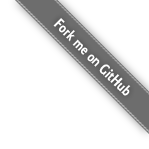C SDK
 The Couchbase C SDK provides a fast, callback-based API for interacting with your Couchbase
cluster. It operates as a single threaded asynchronous I/O library which may be optionally
integrated with an existing asynchronous application. It may also run standalone within a
traditional synchronous or threaded application as well.
The Couchbase C SDK provides a fast, callback-based API for interacting with your Couchbase
cluster. It operates as a single threaded asynchronous I/O library which may be optionally
integrated with an existing asynchronous application. It may also run standalone within a
traditional synchronous or threaded application as well.
The SDK is cross platform and may be used on Linux, Mac OS X, or Windows.
Operations
Interacting with your cluster involves populating a command structure and receiving a related response structure in the callback. The response contains an optional pointer which can be set to application-level data, so that you may have your application context within the callback.
Callbacks are installed as handlers for specific command types, so retrieving objects will have one callback while saving them will have another. Response structures also vary depending on the operation performed; for example a response for a get request will contain the value retrieved from the server, while a response for a store request will only contain status information.
A callback model is employed so that response data does not need to be copied to a temporary buffer, but is rather passed to your callback as it is received off the network, making functionality very fast.
Commands
lcb_get_cmd_t gcmd = { 0 };
gcmd.v.v0.key = "id_key";
gcmd.v.v0.nkey = strlen(gcmd.v.v0.key);lcb_get_cmd_t *cmdlist[] = { &gcmd };
lcb_get(instance, "cookie_pointer", 1, cmdlist);Operation Responses
To receive a response for the operation, the library must first be instructed to send the request to the cluster and await its response. In order for the response to be delivered to the application, the application will have needed to install a callback for the specific operation type.
static void
get_handler(lcb_t instance,
const void *cookie,
lcb_error_t err,
const lcb_get_resp_t *resp)
{
printf("Got response for key: %.*s\n", (int)resp->v.v0.nkey, resp->v.v0.key);
printf("Value: %.*s\n", (int)resp->v.v0.nbytes, resp->v.v0.bytes);
printf("My cookie is: %s\n", cookie);
}lcb_set_get_callback(instance, get_callback)lcb_wait(instance);Storing Items
lcb_store_cmd_t scmd = { 0 };
scmd.v.v0.key = "id_key";
scmd.v.v0.bytes = "{\"json\":\"value\"}";
scmd.v.v0.nkey = strlen(scmd.v.v0.key);
scmd.v.v0.nbytes = strlen(scmd.v.v0.bytes);
scmd.v.v0.operation = LCB_ADD; /* Fail if the item already exists */
/* Create the command array */
lcb_store_cmd_t *cmdlist[] = { &scmd };
lcb_store(instance, "some cookie", 1, cmdlist);
lcb_wait(instance);Note that you are not limited to storing JSON. You may store any sequence of bytes into the cluster (however JSON is most simple to work with if you wish to query the data using views).